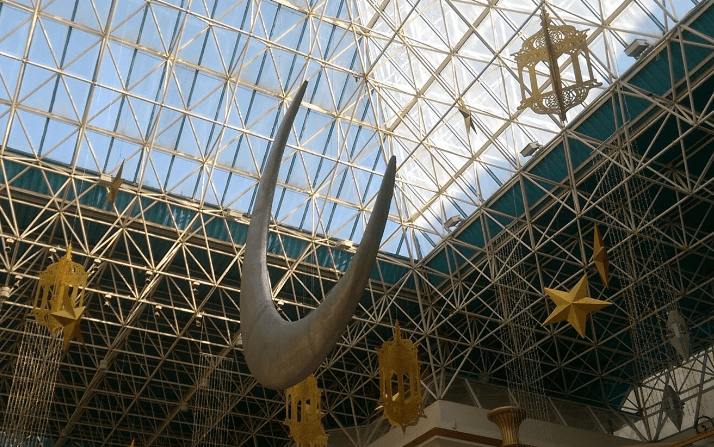
For the expat experiencing Ramadan for the first time in a Muslim country, this month can be a bewildering experience at first. This is especially true in countries such as Saudi Arabia and the United Arab Emirates, where life slows down and business activity closes to a crawl during Ramadan. The ubiquitous restaurants and cafes, where much of daily life and a fair amount of business activity takes place, are closed while the vast majority of the population fasts, from early in the morning until early evening. Then, usually in the early evening depending on the location, the iftar prayer signifies the breaking of the fast. Those who are not Muslim will find their routines have changed.
For the uninitiated, Ramadan is at first jarring, particularly in the workplace. To start, there is no water or food allowed at the desk. If you need your caffeine fix, go to the kitchen or another room that has been sectioned off by a curtain in order to finish off that coffee.
If you happen to work in an economic zone along the Gulf, the rules may be a little more relaxed. But you will find that any eatery open during the day will have curtains covering its windows. On the plus side, office hours will most likely be reduced — where I worked they were from 10 to 4. But if you have an important project or deal that you are trying to sign off, this month can be a frustrating time. Many expats and locals take this time to leave for a trip abroad, and quite frankly, those who are fasting just cannot focus when they are abstaining from food and drink all day.
But annoyances and curiosities aside, Ramadan is an important time for reflection across the Muslim world. While the global media prefers to focus on a few zealots whose actions do not reflect Islam at all, the estimated 1.6 billion Muslims scattered across the globe go about their daily routines. And it is during Ramadan when life for many Muslims takes on the most meaning.
For many Muslims, spread across the world from southeastern Europe to Indonesia, daily routines often center around work. In much of the Muslim world, there is really no concept of a “weekend,” a perk long enjoyed within the Western world. The only day off in many countries where Islam is the predominant religion is Friday, the one day of the week when most Muslims go to the local mosque to pray. On Saturday, the workweek starts all over again — some of the luckier ones may have a half-day on Thursday, but long work weeks are usually the norm. While many of us may be somewhat familiar with the five pillars of Islam, there is arguably a sixth one — hard work.
To outsiders, the long work days typical in much of the Muslim world suddenly end with the start of Ramadan, where now those who are devout Muslims must put themselves in another difficult position: to fast all day. Many Muslims, however, do not see it that way — this month is a time for them to reflect and count their blessings.
And speaking of those aforementioned five pillars, including zakat, the obligatory giving of alms to the needy, Ramadan serves as a reminder of what Islam means to both the individual and society. Whether it is by online donations or the ATM-style machines commonly found in the malls throughout the Gulf region, zakat is amongst the most important ways to give back to society and find that self-purification. The evidence suggests that the practice of corporate social responsibility, still a nascent movement in much of the Middle East and Asia, is in part being adopted due to this important pillar within Islam.
In any event, if expats are jolted by working during Ramadan in a Muslim country, just imagine what it feels like for a Muslim during Ramadan while working in a Western nation.
Lima Al Azzeh, an editorial writer for Slack Technologies, assembled a collection of thoughts from Muslims who adhere to Ramadan’s traditions in the U.S. and Canada. The trials, tribulations, challenges and patience experienced are well worth a read as this year’s Ramadan ends and transitions into Eid al-Fatr, a celebration that is one of the holiest of the year and ends with the resumption of the intense weekly routines for Muslims worldwide.
Image credit: Leon Kaye

Leon Kaye has written for 3p since 2010 and become executive editor in 2018. His previous work includes writing for the Guardian as well as other online and print publications. In addition, he's worked in sales executive roles within technology and financial research companies, as well as for a public relations firm, for which he consulted with one of the globe’s leading sustainability initiatives. Currently living in Central California, he’s traveled to 70-plus countries and has lived and worked in South Korea, the United Arab Emirates and Uruguay.
Leon’s an alum of Fresno State, the University of Maryland, Baltimore County and the University of Southern California's Marshall Business School. He enjoys traveling abroad as well as exploring California’s Central Coast and the Sierra Nevadas.














